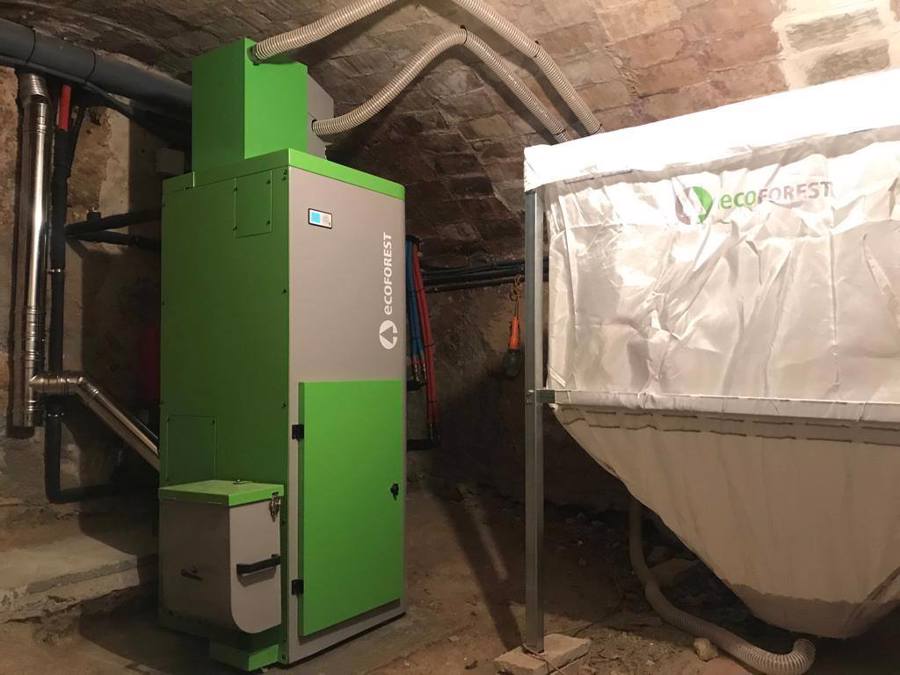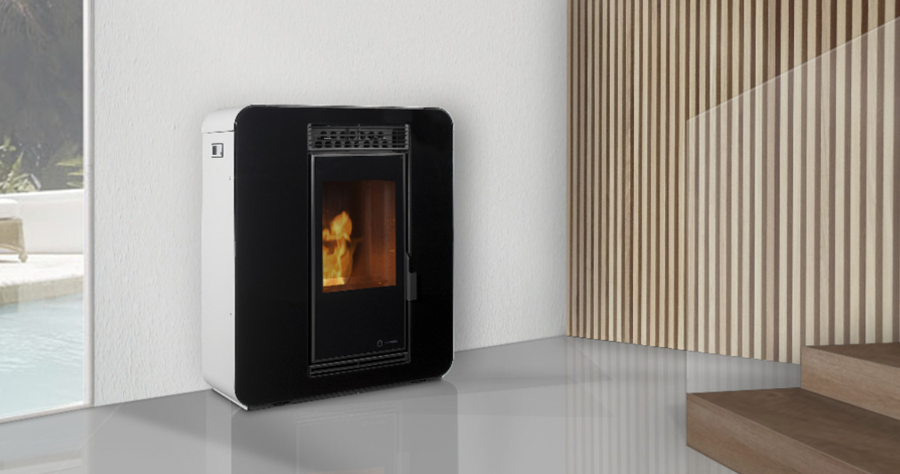
Biomass Boilers
What is a biomass boiler?
Biomass is a solid fuel that is formed from a product that has grown as a tree or crop. The main product used as a solid biomass is wood in a variety of forms. This is not the only product and below is a summary of the products that currently fall into this category.

Most biomass systems have a limited degree of controllability – they are either full-on, or off. Therefore nearly all forms of biomass boilers will be coupled with large hot water tanks to store the energy that they produce and to feed it into the property at the rate required to maintain the desired temperature. This makes them unsuitable for most peoples’ homes in the UK.
How does a biomass boiler work?

Wood Pellets
This is wood dust such as sawdust from fast growing trees, which are then pulped and processed at high pressures into small pellets around 6mm to 8mm diameter. This process gives a degree of uniformity and ensures that the fuel is consistent and easier to feed into a boiler using mechanised feed screws. The small size of the fuel allows a controlled delivery and high combustion quality. One kilogram of wood pellets can produce nearly 5 kWh of heat. At present, burning pellets is more expensive than burning oil. In our opinion it is also of questionable environmental value as a considerable amount of energy is used to process the fuel.
Wood Chip
These are the chips produced when forestry is cleared for timber. The small branches and bark are removed from the tree and can be chipped. They are composted, burnt as fuel, or become waste products. They are less consistent in size and type than pellets but are small enough to be handled and fed into a combustion unit mechanically on demand. They are not often used in domestic applications as the feeder is expensive. It is important that the quality of the chips is high. Damp fuel burns inefficiently and can damage the burner. Prospective users need to feel assured of a long-term supply of good quality fuel at a reasonable price before committing to implementing such a system.
Wood Logs
This is the most popular form of solid biomass but in a large majority of cases is used simply as a decorative or supplementary heat source such as a wood burning stove to heat a room in a house.
Advanced log boilers from 20kW upwards now allow very high combustion efficiencies, greater than 80%, using fan controlled combustion and 'gasification'. The boiler is remotely located away from the combustion zone system having the ability to absorb heat from more than one boiler and even solar heat collectors. Log boilers do of course require a regular supply of good quality, dry fuel. Poor quality fuel will increase emissions, reduce efficiency and decrease the lifetime of the equipment. A log burner also usually requires manual labour to stoke the boiler and clear the ash.
What are the benefits of a biomass boiler?
If you have a fuel (eg wood supply) they can be extremely cost effective to run.
What are the pros and cons of a biomass boiler?
- If you have a supply of fuel they are cheap to run
- Very high maintenance
- Require large amount of space to install
- Can require large stores for fuel
- Solar battery storage